Why globalization is the most successful failure in human history
Thank you readers for your contributions!
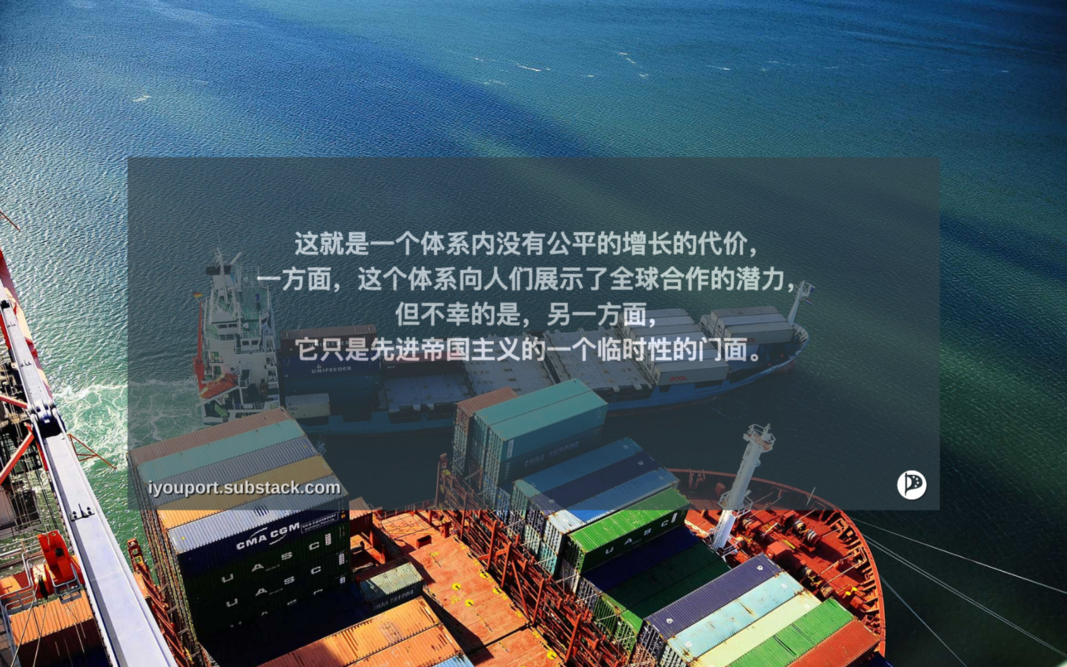
I read " Offshore Revolution, Onshore Capitalism - The Changing Relationship of Ships with China and the World " published by IYP, which uses the life of a ship to sort out the contact and evolution of China and global capitalism. This article chooses an important perspective - ship, but, unfortunately, its field of vision is a bit narrow, and it does not have the deeper meaning of the ship as an important carrier at the moment.
This may have something to do with the identity of the author, who specializes in China and tends to look out from her own "inside" perspective, which may be difficult to get too far. I don't have the ability to do a detailed and in-depth exposition, which would be about the size of a book, but I would like to try to add a possible exposition to it.
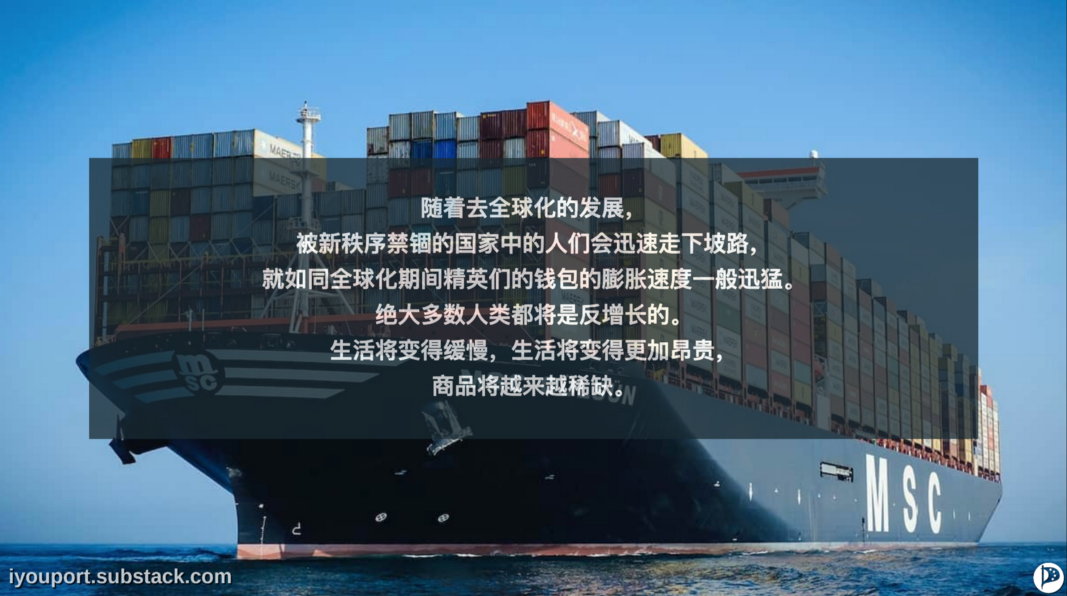
Ships are the transportation backbone of the global economy. 80% of global trade volume and 70% of value are carried by ships. To replace a large ship crossing the Panama Canal with a train would require a 65-kilometer train, and to replace it with a truck would require at least 6,500 trucks.
Ships are the cheapest way to transport goods. Shipping a container across two oceans costs about $700. A pair of shoes is 11 cents. One of the largest merchant ships paid $1 million to transport 18,000 containers through the Suez Canal. About $55 per container. A pair of sneakers is less than a cent.
By reducing the cost of transporting goods to 1% of their value, globalization has turned “archipelagos” of national markets into global bazaars, where everyone trades with everyone else to fill their stomachs. Never in history has it grown so fast, in so many numbers, and everywhere. What followed was an increase in living standards and life expectancy, the spread of knowledge and technology...bred the great fantasy that it seemed that humanity was about to multiply among the stars.
There are more ships and fewer ports, because ports serve not one city or country, but regions within the international system.
Large ships sail slowly: ~20–40 km/h. Not because they can't go faster. Rather, speed increases fuel consumption, which increases the cost of transportation.
In the past, sailing slowly was dangerous - competitors would attack you. However, after WWII, the US took over the issue and offered the world a new economic order in exchange for a political alliance against the Soviet Union , they said: As long as you stand with us against the Soviet Union, we will give you access to all markets , protect trade routes with our navy. The deal worked, and it determined the outcome of the Cold War .
Since then, people have become accustomed to the new world that this success has brought. Some people are addicted to this, eager to announce the "end of history", but still do not realize that this "new world" turns out to be so... fragile, knowing that everything is temporary, and now, it is moving towards a never-ending The past that will come back flies.
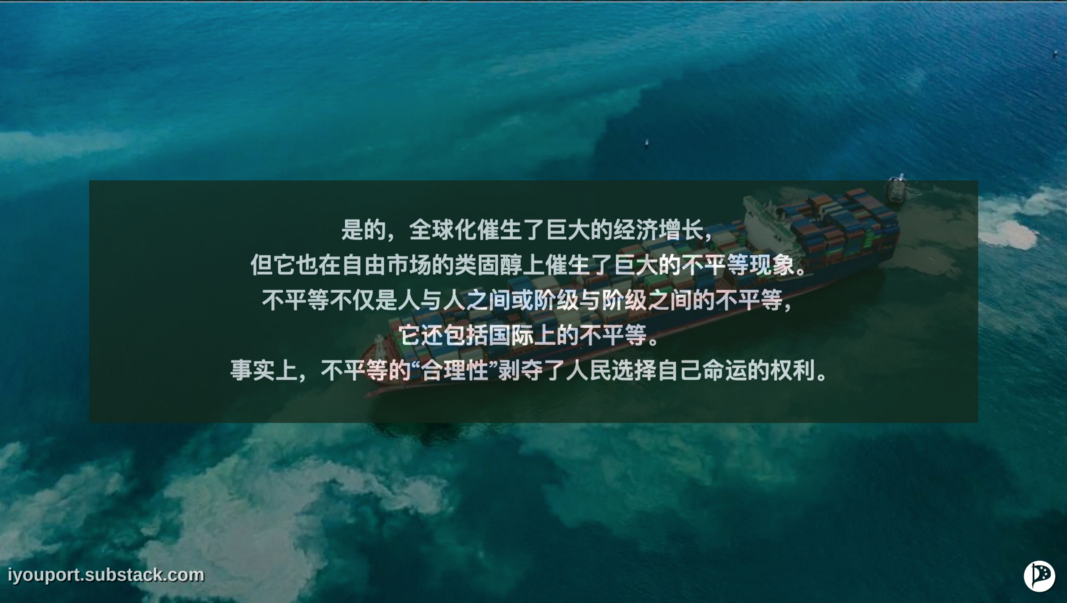
A by-product of globalization is that it fosters complete dependence: first on America's willingness and ability to sponsor world trade (and its value), and second... on everyone's dependence on each other.
In the past, every country tried to create an autonomous economy, which was known to be impossible because the resources of each region were limited . With your own resources scarce, you either conquer others - hence the emergence of empires and their colonies - or fall prey to other, more aggressive conquerors. It is globalization that has changed this dynamic, allowing countries without very strong militaries to have previously unimaginable capabilities to draw on all kinds of resources from anywhere in the world. However, more than that, it has changed.
With access to the world market, each country's economy underwent specialization: these countries provided bread, some provided iron, and others provided cheap labor. This means that if the person providing the bread is suddenly withdrawn from the system, everyone will be left without bread because everyone is dependent on everyone else. This is true of all but the United States itself and a handful of other countries.
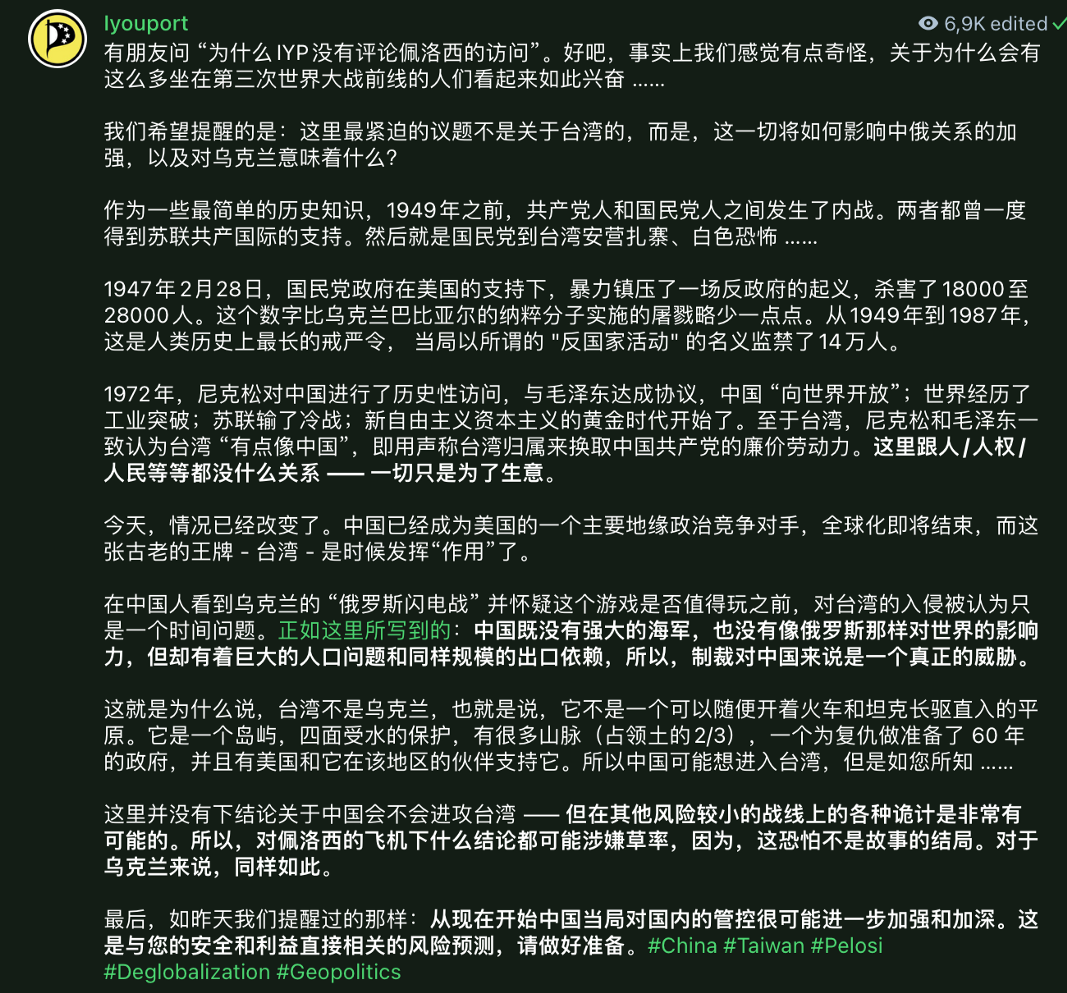
Another lucrative pitfall of globalization is the diversification of supply chains , where the process of producing an item is broken up into thousands of steps, leaving workers who can do some of them unaware of how to do the same process. Another part of the job: for example, people who refine silicon can't make silicon wafers, people who can make silicon wafers can't make motherboards, people who can make motherboards can't code... and so on.
Within the global system, this specialization has transformed entire countries unevenly: some countries have been ground into mere cheap labor, others into machines assembled from parts created and designed by others. This is logical and correct from a system-wide perspective. But this particular system has never united all the peoples of the world into a single, truly common entity, and it has always retained the remnants of the nation-state .
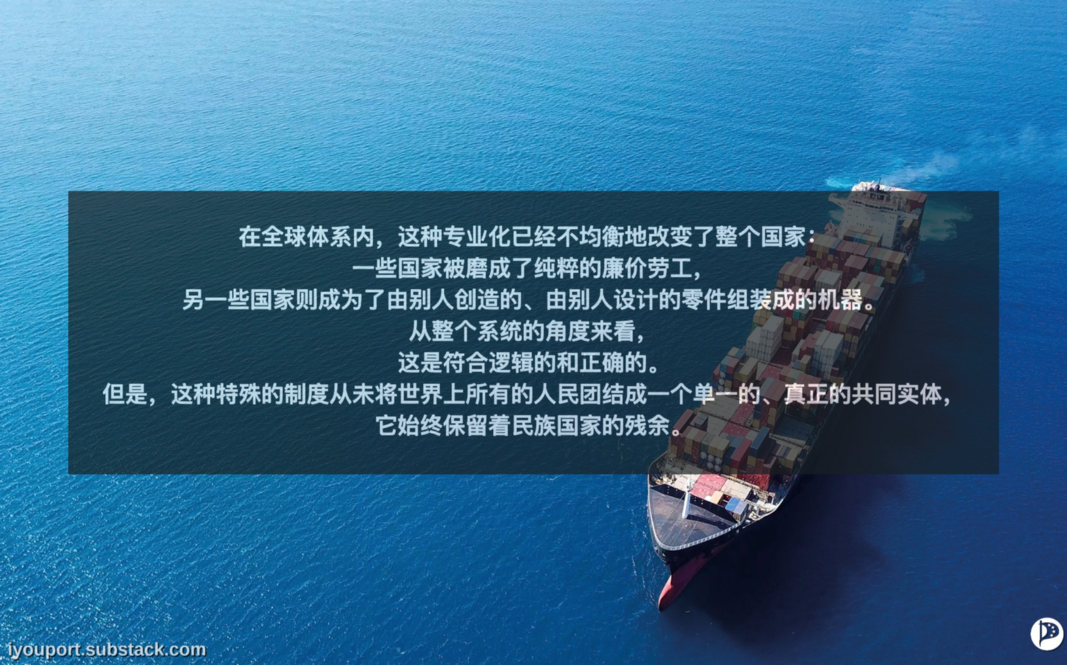
The geography of production and consumption is out of sync. That's why someone who grows excellent cocoa beans may never taste chocolate. Countries that only produced aircraft yesterday have become adjuncts to the commodity, and are now known only for corn and not for fighter jets. Whoever didn't have time to build a factory yesterday will never build a factory and at the same time don't see that as a problem because they can now import any industrial product in exchange for the beans they grow and the motivation to build their own factory is gone . So put Africa in the whole game, it's still not industrialized, and now it can fully feel the shortage of Ukrainian wheat ...
Yes, globalization has spawned enormous economic growth, but it has also spawned massive inequality on free-market steroids . Inequality is not only inequality between people or between classes, it also includes inequality internationally. In fact, the "rationality" of inequality deprives people of the right to choose their own destiny. If your people don't succeed in taking the lead in the redistributive era of the old empire, just forget about the dream of building airplanes. Go serve those richer nations than you, and they will build planes instead of you, or serve those rich like you and me, and become the "baker's nation" in this story.
Every country outside the center of the empire must understand that it no longer has a national economy. - If your own car still can't be a true competitor to Toyota, who do you expect to need it? If you suddenly couldn't drive a Toyota, what would you drive out of the house? ... everything is like that. China's imperialism could not have been more evident, although its consumers were still not ready to "fall in love" with BYD.
As deglobalization progresses , people in countries imprisoned by the new order will go downhill as rapidly as the wallets of the elites during globalization. Rich countries can buy poor countries, but poor countries cannot buy engineers for themselves. Semiconductor factories will be able to make chips for cars, but car factories cannot make semiconductors.
The vast majority of humanity will be anti-growth. Life will become slower, life will become more expensive, and goods will become more and more scarce .
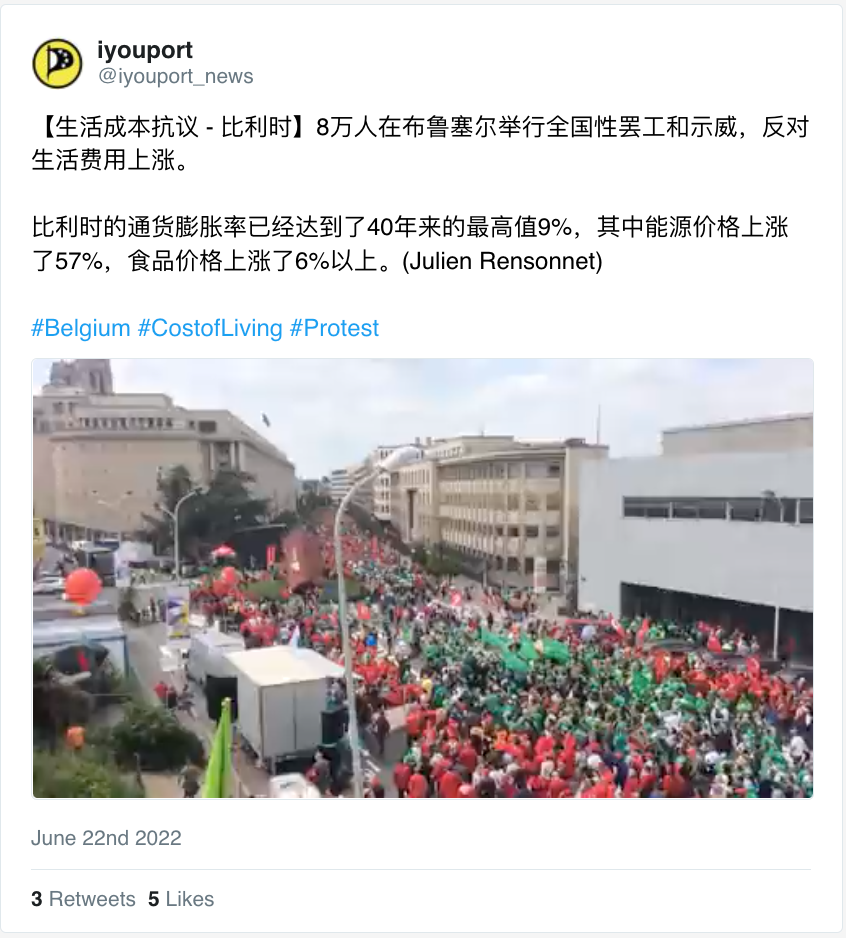
For all its shortcomings, globalization has brought so much fat to the world, why should it stop? What's the reason?
First, the USSR has collapsed and the US is no longer interested in offering its navy to everyone on the same favorable terms. If you've already won, have become the hegemon, and can now charge exorbitant taxes for your services, what's the reason for continuing to offer concessions? It's like giving up a big-money business for charity, double-paying a mortgage that's already paid.
Second, the United States does not need a global system to feed itself. Unlike all others who are tied to the system, the United States itself has never tied its economy to globalization. Only 11% of U.S. GDP is exports. One third of it is oil. Two-thirds of the US trade mix is in the Western Hemisphere. The world's main currency is still the US dollar. The U.S. economy is the largest, most isolated, and safest . It doesn't need you at all. And you, yourself, will run to it in the world to come.
Third, the growth of the world's material base brought about by globalization has changed its prices and created new regional leaders. Today, the United States no longer has the necessary number of patrol ships to protect everyone's trade routes. For America's own trade, yes, there is; for the trade needs of a limited number of solvent partners, yes, there is. But that's not the case for the world as a whole, it is fragmenting and becoming multi-polar - it will split into regional clusters, each with different prices, conditions and exchange rules. What China's BRI wants to snatch is a cluster, even a cross-regional cluster. This approach is one of the most characteristic features of the Chinese Empire . But you know, it's more likely to turn into a hallucination .
The shrinking of U.S. military bases, the reduction of patrol ships, the rise of U.S. nationalist sentiment , and the migration and concentration of hegemonic production itself to the Western Hemisphere are all symptoms of deglobalization , accelerated by the pandemic , the global economic crisis , and the war in Ukraine . .
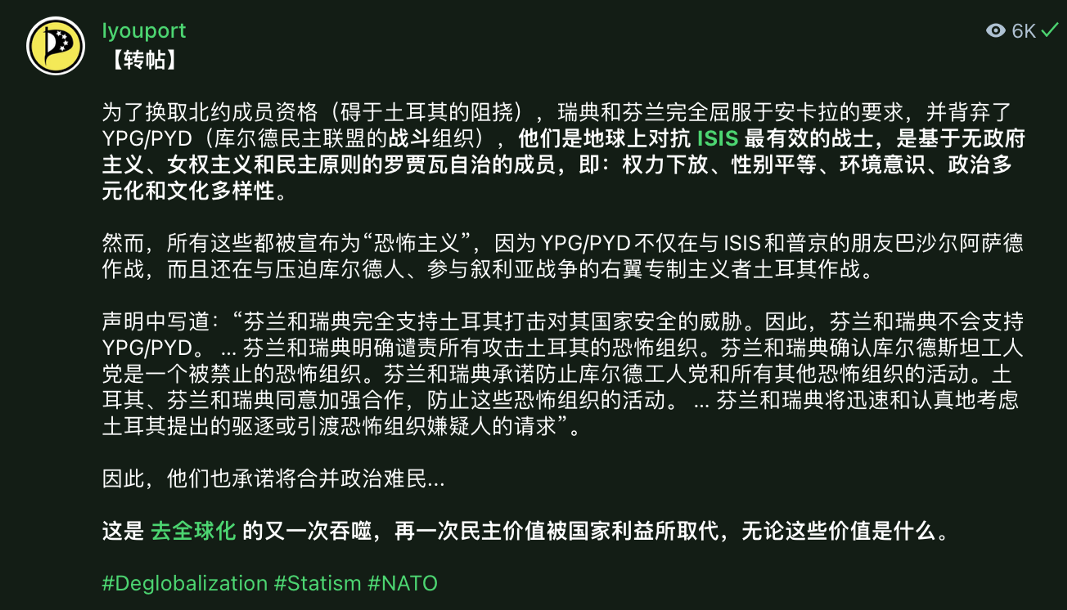
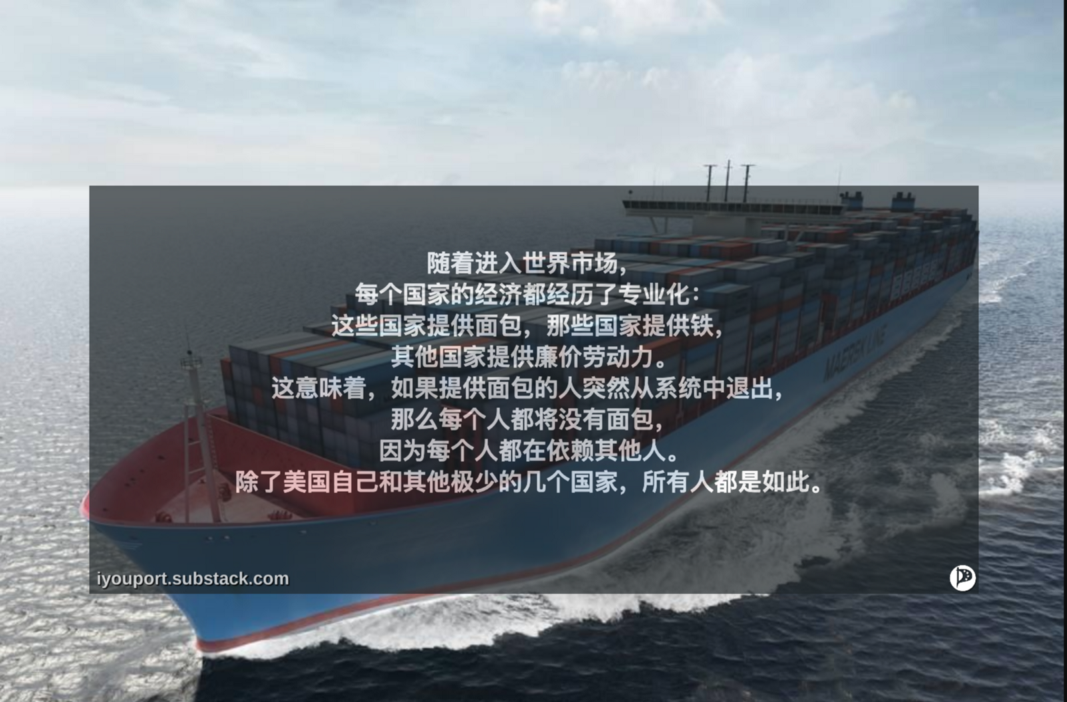
Vessels work in a chain: sailing from port to port, unloading cargo along the way. A hiccup at any one stage in the supply chain can lead to a cascade of spasms that can even bring an entire region's industry to a halt in the world system.
Besides the United States, only four countries in the world are physically capable of reaching the Persian Gulf: France, the United Kingdom, Japan and China. But none of these countries can provide the necessary escort for the safe operation of trade routes, a world in which Russia is the enemy, China is the enemy, the Saudis are starting to get frustrated, the third world is once again abandoned, and the EU is tit for tat from the Kremlin cracking. The conditions for the functioning of the global system no longer exist.
If the United States were removed from the guarantor of trade security, the world would lose general integration, lose global markets, lose mass consumption, and experience deindustrialization. With no guarantor but competing local factions, the risks associated with shipping and the price of global trade automatically skyrocket.
What effect does this have?
A 1% decrease in the price of goods transported leads to a 5% increase in trade volume, along with an associated increase in production, industry, and wealth. Well, now it should be easy for you to figure it out. What happens when shipping prices go up instead of down…
Most of the countries that specialize and profit from globalization will not be able to maintain their current level of industrialized existence on their own. Such countries are doomed to return to the pre-industrial era. Including Chinese paper tigers . When people talk about "acceleration", they may not have reached that level.
This is the price of not having equitable growth within a system that, on the one hand, shows the potential of global cooperation, but unfortunately, on the other hand, is only a temporary façade of advanced imperialism. ⭕️
#Globalisation #Deglobalisation #Nationalism #Imperialism #China #USA #Trade #Economiccrisis #vessels
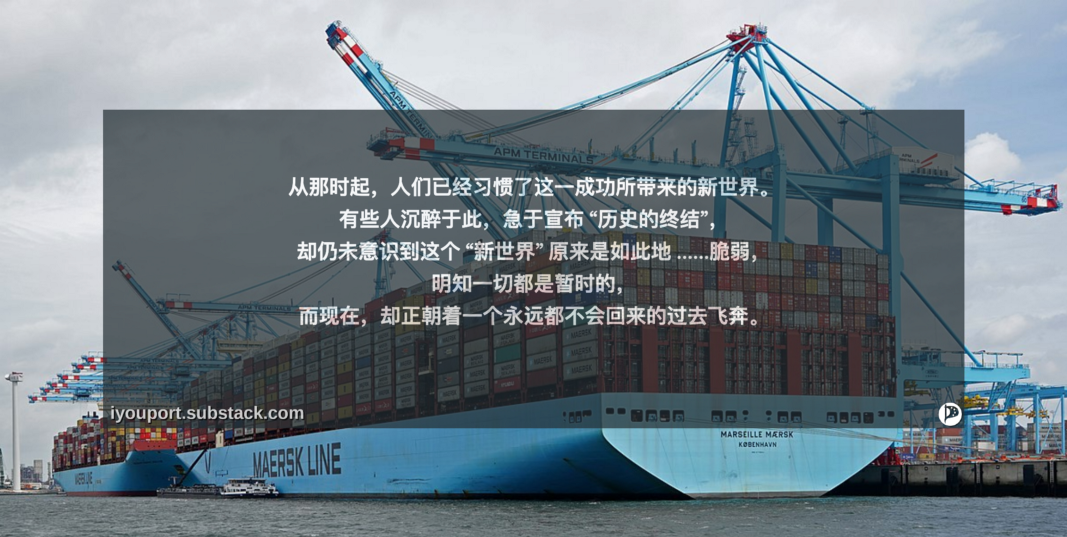
Forward comments [1] ——
Globalization is impossible in a world without all-to-all trade, broken supply chains. Everything around you these days depends on free access to all markets and resources, as well as low transportation costs that would only be low enough in a peaceful world.
This has been the main condition of globalization - global trade rather than global war. The modern world ends where the first bullet hits a merchant ship. This bullet changed the cost of continuing most life on Earth .
For more than 70 years, nearly all national economies have been reconnected and interdependent on a global scale. That's why they can grow so fast that any pre-industrial backward region finds it possible to trade the beans they grow for any industrial commodity like iPhones.
There would be no globalization without A hooligans. No B-hooligans and no globalization. It has nothing to do with whether you think they are rogues or not, but because what they have is part of what makes the system work. That's the plug - there's no way to keep the current order intact without excluding/"cancelling" anyone . Now the plug has been pulled.
Conflict among participants, and/or anyone being excluded or withdrawn from the system, means that all will lose the resources they need to live in the modern world. Not everyone has access to these resources elsewhere. Most people can't.
Humanitarians, ideological stalwarts who now call for keeping "outsiders" out, "abolishing", "banning" whatever, their attitudes are dazzling, but they also mean their views on how the economy works Fundamentally clueless. That's why I say that the naked protester is performing, probably based on power competition, because basically only power competition can give people the illusion of "useable value" of real crisis.
No one flushes himself down the toilet for the benefit of other people - no gas, no small and medium industry, no heavy industry, no heating, no steel... no. That's why arms supplies are falling .
Thousands of people had already started demonstrations in Plauen, Germany, yesterday to protest the expected rise in electricity and natural gas prices. This is just the beginning. The UK is home to 115,000 workers on strike and 118,000 protesting, burning electricity bills outside energy regulators against an 80% rise in electricity prices in October (search the campaign " Don't Pay UK ").
Globalization is an ouroboros. In times of war, safe maritime trade is impossible. Just as there can be no seaborne trade without diesel. And without oil, there is no diesel. And, if you don't have a fleet that allows you to trade safely, where are you going to get oil? … everything is connected to everything.
There are still some people who still have the illusion that the US will not allow deglobalisation, no, on the contrary, the US will be largely unaffected, as explained here . Deglobalization does hit everyone, but it hits everyone differently.
Yes, until recently, America enjoyed cheap Chinese workers, but... Chinese workers are no longer cheap, and China itself is now the enemy. Today's Chinese can be replaced by Mexicans - they have been trained for this.
Yes, the US outsourced semiconductor manufacturing to Taiwan and is now closing the gap by funding the transfer of that manufacturing to US soil. Plus it has a solid safety net in Southeast Asia: Japan and its superfleet.
In short, deglobalization is not only not fatal for the United States, it is also lucrative. Where do you think investors will go when Asia and Europe become completely unstable? Where will the refugees go? Back in the same place where they escaped World War II...
Forward comments [2] ——
Whether it's economic catastrophe, climate crisis, deglobalization, international relations... or the war in Ukraine, the laziness displayed by some prominent intellectuals of authority is staggering. Just as many of them still fail to recognize that the ownership economy (Bush's legacy) was the root cause of the 2008 financial crisis. - They continue to be "bullish" on NFTs, an ownership economy that's just put on a new vest ...
Take Ukraine for example . To this day, even the most authoritative intellectuals continue to use themes such as "crazy Putin", "desire of the empire", "will of the state" to interpret the catastrophe - in short, those from sorcerers and Something abstracted from the spoken word of a fortune teller. Ideological smoke.
The iPhone consists of 11,000 parts with 10,000 individual steps in the supply chain. Even if you could achieve the steps to make 10,999 parts on your own, you wouldn't have an iPhone. You only have a bunch of parts.
In other words, each of the 10,000 steps of its production -- from mining and preparing materials in different parts of the world, to transporting and assembling them in factories into the final product -- is fundamental and necessary. And this is only possible when the risks and costs of maritime trade are practically zero .
What people today consider to be “normative” economic design is actually an illusion, a short-lived historical anomaly. Without a global system based on the security of guaranteed maritime trade routes, things would work differently: without specialization of intermediate products, moving supply chains closer to consumers of final products, Shorten these chains and optimize their energy consumption.
Simply put, everything starts to get less and everything starts to get more expensive . The collapse of this system means that two-thirds of the world's productive population will lose their livelihoods. So everything will be affected.
The agricultural sector will be the most sensitive to this crisis. If something happens financially, it will be difficult for farmers to buy supplies. If something goes wrong in production, they lose the equipment to cultivate the fields. If something goes wrong with industrial products, they don't have fertilizer anymore. If things go wrong with energy, they're going to have problems not only with fertilizers, but also with pesticides and herbicides, which require oil to produce.
To hell with the iPhone, it's fine. Disruptions to the supply chain mean you will receive your gadgets months later. But this is not feasible in the agricultural sector. For farmers, a delay of several months in any one stage of production means there will be no crops for the entire season. Can any of us fill our stomachs by playing with our phones?
And Russia is not only the main fertilizer exporter on the planet, but also the main exporter of materials needed to produce fertilizers in other countries. Removing fertilizers from this process would cut the world's food by 2/3. By the end of the year, between 400 million and 1 billion people could face food shortages due to the war in Ukraine and related supply chain disruptions. ( See here ) That's why I keep stressing that China and Russia are not in the same heavyweight category at all, Ukraine is not Taiwan .
This is what it really means about war and the lack of a global agreement. No ideology is capable of explaining this. Everything that people think is "the norm" runs on a line and is as fragile as an eggshell .
A gesture against hooligans is always commendable. However, if you take the initiative to narrow your vision just for a gesture, and take the initiative to become superficial and shrewd, then such an argument will not only be meaningless to solve the problem, but it will obviously become an obstacle. To repeat: Whether it is economic catastrophe, climate crisis, deglobalization, or international relations, this superficialization and vixenization presided over by "authorities" is an obstacle, not a stepping stone.
Read this lengthy thread from IYP , which has been documenting cost of living and energy crises from around the world, and apparently only grabbed some representative, far from complete.
People on the internet love gesture, and the bigger the bigger the better; I agree that performance is free, but if the obsession with performance gets in the way of envisioning solutions, we need some serious debate . ⭕️
#Ukraine #Deglobalisation #Costofliving #Energycrisis #Economiccrisis #Ideology
Like my work? Don't forget to support and clap, let me know that you are with me on the road of creation. Keep this enthusiasm together!

- Author
- More